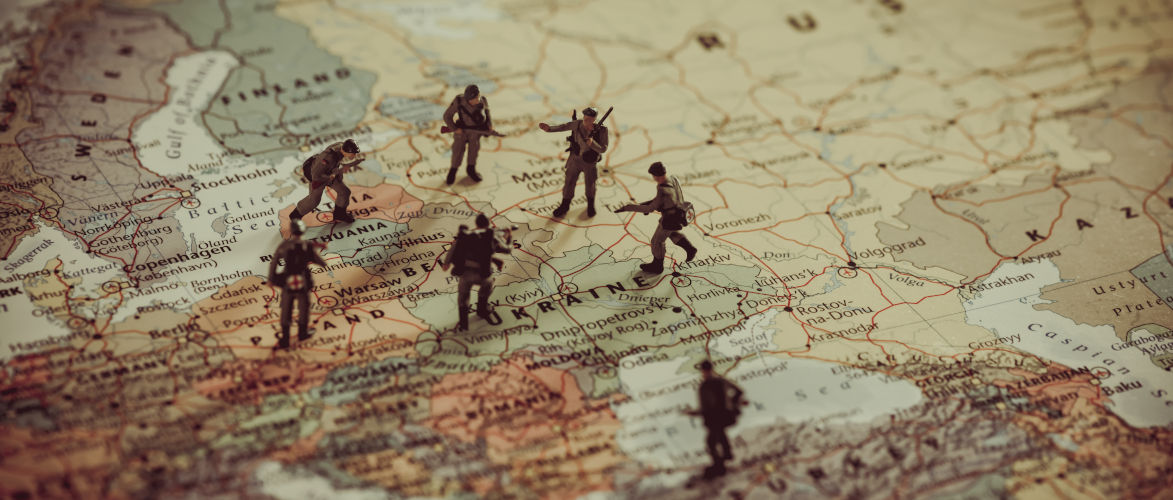Insult of majesty or necessary examination?
By Jochen Mitschka.
After learning from the Investigation Committee on the Swine Flu (1), the topic “The situation of people in nursing homes” (2), a report on the conditions in Bergamo (3) was followed by: “The Drosten test, immunity and the second wave” (4). After the hearing on “The situation of small entrepreneurs and self-employed people” (5) now the 3rd and last part of the session 6 (6), which deals with the situation of children.
At the beginning of the session, Ms. Viviane Fischer read out texts from letters that reported how panic and anger were spread among children towards “anti-social people” who “wanted to kill others” by not complying with government regulations. The reports went as far as physical attacks for not wearing a mask in public.
“Parents stand up”
Next, Mrs. Tina Romdhani from the citizen’s initiative “Parents stand up” spoke out specifically against this kind of indoctrination of children, as explained in the introduction by Mrs. Fischer. More than 10,000 members have organized themselves in the initiative since May (7). The initiative stands up for mask liberty for children and a free vaccination decision, thus against a vaccination obligation.
Mrs. Romdhani then reported how the experience with her own children (headaches, nausea due to the mask, desire to stop going to school) had made her want to become part of the movement. She then reported on the pressure exerted on parents by school administrators when they dare to question the hygiene concepts.
She then reported on cases where children were forced to wear masks despite the legal obligation and on statements in school texts that exert massive pressure, even on primary school children … “if you don’t follow the rules, we’ll have you picked up”.
“According to a statement from the Karlsruhe school board, children who are exempted will probably not be able to attend school in the coming school year.” This would be a tremendous punishment for these children, Mrs. Romdhani explained, adding that this statement was only made at the explicit request of a mother. And one might imagine what this behavior would have meant if, at the beginning of the school year, the children had simply been sent home without their parents being able to prepare for it.
She then reported on the symptoms that were observed among children. Nausea and vomiting, with elevated temperature and “confused talking in sleep” were reported. It would be difficult to teach the children to understand “the other side”, the side that would exert pressure, it would be difficult to explain to them that they would react like this simply out of fear. She then reported on a case where the acclimatization period for kindergarten children was reduced from weeks to days. The adjustment period should not be shortened, but in special cases even extended.
Mrs. Romdhani works as a sign language interpreter and also reported about special problems for people with hearing problems, for whom understanding is made even more difficult by wearing a mask. Especially when it comes to children with impaired hearing. Children would be penalized for questioning the rules of hygiene. The question alone would be an offence. She then reported on the pressure on the parents, who often work “on the side”.
Then she mentioned the absurdity of children playing together outside school on the playgrounds and soccer fields without masks. The feared mixing, which is prevented with great pressure in the schools, would have happened outside the schools long ago. And this would have happened without having any effect on the number of infections. Nevertheless, the children should now wear masks at school and keep their distance. The children themselves would recognize this as absurd and it would be difficult for the parents to explain this.
In Baden-Württemberg several cases of childhood isolation have already been reported. The children had suffered not only from domestic quarantine but also from domestic isolation, which meant that contact within the family was avoided. Contact is only allowed with a mask and protective equipment, leaving the home only in case of danger to “life and limb”. The public health department can enter the apartment at any time, and parents who violate this rule are threatened with confinement in closed institutions and two years’ imprisonment. A test result would be irrelevant, but the measures would be enforced for a period of fourteen days.
In their opinion, all the measures are aimed at teaching the children to accept measures without questioning them, to submit. This would also “cut” the children’s own feelings, quite deliberately. A child would have a feeling for what is right and what is wrong. This feeling would be contained and damaged. She then reported on the consequences that could also be observed after the compulsory wearing of masks. There were “girls who collect masks like they used to collect stickers”, some find it “cool” to walk around with a mask. Others felt irritated and disturbed by it.
One child reported that the relationship with class teachers, which before Corona was a relationship of trust, has now changed. The damage caused by the Corona measures had already been done long ago. Mrs. Romdhani reported that she had reported a case for criminal prosecution. When she asked at the police station, they would have asked what had happened, and the policewoman in charge would have said: “but you must not forget, we have Corona!”
She then reported a case in which a student who had a mask liberation was excluded from class. The anti-discrimination office would have agreed with her, but then said: “But we have Corona!”
Dr. Hoffmann explained his astonishment at the way children and parents are treated. The Basic Law placed the family under the special protection of the state, and there would be no restriction in the Basic Law “except for Corona”.
Mrs. Romdhani pointed out that there was an official announcement that letters she had drafted asking for information from the schools would no longer be answered. Parents who tried to obtain information would be “sent from Pontius to Pilate”. Everyone who was approached referred back to someone else, as one could have seen from the example of the state parliament members approached before the vote on the mask obligation in schools.
As a positive development, however, one could observe that a national and international network of resistance would be formed, and that, for example, the Klagepaten would do an excellent job of supporting parents with problems due to the mask obligation.
As examples of the daily problems, Mrs. Romdhani reported about children who had lost their masks on the way to school and did not receive an emergency mask from the school so that they could attend classes, but had to wait in front of the school for their parents to pick them up. Primary school children were given calligraphy assignments “I should wear a mask”, “I should keep my distance”, or “other people can get sick”. In Bavaria, there are examples in mathematics classes in which the percentage of a group that could suffer a corona infection is calculated.
To this day, there are youth offices that no longer provide counseling. Many counseling centers only have a telephone service. The sign language interpreter emphasized the exclusion of disabled people in this context.
Basically, according to Dr. Füllmich, the organization “Parents stand up” would take over the tasks that the state no longer fulfills. There is no state forum in which children and parents can exchange views and advice on the concerns about the corona measures. In such cases it would always be said “this is because of Corona”.
She then reported that teachers who try to remonstrate and act in a compensatory way are usually severely marginalized. In the end, they would jeopardize their jobs for the good of the children, which cannot be appreciated highly enough. Mrs. Sternbeck pointed out that there are different ways to deal with a threat. One is called “identification with the aggressor”. As an example, she reported that children who have been mistreated tend to mistreat their own children as adults themselves. It would be an unconscious process by which they try to overcome the situation. She sees the overidentification with the “Corona hero” who protects others through the mask, or through the “mask as a fashion item” also activates this process. This is exactly what the industry would commercialize and normalize by offering dolls with masks and producing masks exactly for this target group.
Mrs. Sternbeck fears that children who are placed under this distance and mask obligation in the long term will lose the natural reference to their own judgement and become people who have lost the reference to themselves and then suffer severe mental disorders in the long term. Of course, this would always depend on the general conditions under which the children grow up, especially the behavior of their parents. Dr. Füllmich pointed out that in the past the discussion about government decisions has never been suppressed as it is now in the current crisis of government action. He personally would not have experienced such hostility against critics of the Corona measures as in Germany in the USA.
Ms. Sternbeck then talked about a young person who was exempt from the obligation to wear a mask for health reasons, who had also referred to the regulation in Baden-Württemberg, but was not taken along by three bus drivers. One of the bus drivers had even got off the bus and threatened to beat him up. She herself would have been approached in the bakery by a mother who said that she absolutely refused to work with the schools. She would have replied that her and her children would play with each other normally, asking why then suddenly different rules would have to apply at school. At which the opponent would have run out “furiously” of the bakery. She wondered whether in the meantime the fear of social pressure would be greater than the fear of the virus.
Mrs. Romdhani, who had lived abroad for a long time, noted that she had noticed earlier that Germans are hesitant to ask certain questions. And she thought that this crisis had now brought precisely these qualities to the surface. Dr. Hoffmann pointed out that in the context of the mask discussion, the protection of minorities would have been completely eliminated. Anyone who could not wear a mask for health reasons would be considered a “mask grouch” in the simplest case, but often as someone who “wants to infect others”, who is “anti-social”, who “wants to kill other people”. A child would not even have the possibility, which an adult would have received by socialization and self-confidence, to set something against this social stigmatization.
Dr. Füllmich asked explicitly once again whether in Germany the need for harmony and the hostility against those who think differently would be greater in Mrs. Romdhani’s opinion than abroad. She pointed out that if she had lived in Tunisia for many years, it would have been similar. But what she would hear from other European countries, especially in the North, would be more relaxed about nonconformists there. After a short explanation of how children and mothers react to disabled people, she said: “We Germans have a hard time being different”.
Ms. Sternbeck pointed out that in society, the devaluation of critics of government measures was taking on increasingly drastic forms. A new image of mankind would be created for such people. There is talk of “naked faces” as if it were indecent to be without a face cover.
Dr. Hoffmann then asked if it was known that children would more often develop aggression or auto-aggression due to insecurity and compulsion. However, there were only individual reports about this, no general investigation by the invited persons. Mrs. Romdhani reported from her younger son that he would now come after school “loaded” with tension, which would not have been the case in the past. And she reported that in other families, especially small children would also freak out, scream, pick fights, and not always the parents would be able to deal with it.
Outlook:
In the next part, a summary of the report on benefits or harms of the masks will follow.
Sources:
- https://kenfm.de/corona-untersuchungsausschuss-teil-1-von-jochen-mitschka/
- https://kenfm.de/corona-untersuchungsausschuss-teil-2-von-jochen-mitschka/
- https://kenfm.de/corona-investigation-committee-part-4-by-jochen-mitschka/
- https://t.me/ElternInitiative
+++
Thanks to the author for the right to publish.
+++
Picture source: OvalMedia
+++
KenFM strives for a broad spectrum of opinions. Opinion articles and guest contributions do not have to reflect the views of the editorial staff.
+++
KenFM now also available as a free app for Android and iOS devices! Via our homepage you can visit the stores of Apple and Google. Here is the link: https://kenfm.de/kenfm-app/
+++
Support us with a subscription: https://www.patreon.com/KenFMde
+++
You like our program? Information about further support possibilities here: https://kenfm.de/support/kenfm-unterstuetzen/
+++
Now you can also support us with Bitcoins.

BitCoin address: 18FpEnH1Dh83GXXGpRNqSoW5TL1z1PZgZK










Kommentare (0)